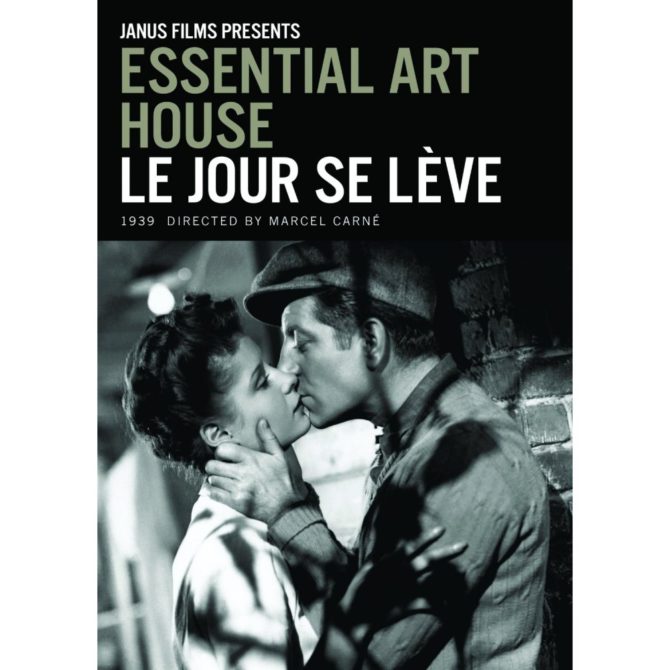The Top 5 Films by Jacques Prévert

Renowned poet Jacques Prévert was also a prolific screenwriter, working with some of the most important French filmmakers of his time. He and director Marcel Carné invented poetic realism, portraying the drama and poetry in ordinary people’s lives and creating timeless classics. In their legendary masterpiece Les Enfants du Paradis (Children of Paradise, 1945), actress Arletty, in her inimitable high-pitched Parisian accent, speaks one of French cinema’s most famous lines: “Paris est tout petit pour ceux qui s’aiment comme nous d’un aussi grand amour” (Paris is so small for those who love each other as we do, with such an immense love). Some of Prévert’s films that are less well known in the United States:
MOST POLITICAL
Le Crime de Monsieur Lange (The Crime of Monsieur Lange)
Jean Renoir, 1936
Batala (Jules Berry), the despicable owner of an indebted publishing company, fakes his own death to escape his creditors. His workers, led by M. Lange (René Lefèvre), take over the business and turn it around. All is well until Batala comes back to claim what he considers his due. The sole collaboration between Renoir and Prévert, and the latter’s only political film, Le Crime de Monsieur Lange was made when the left-wing Front Populaire was governing France. It reflects the hopes of the time that cooperation between workers could achieve more than rampant capitalism.
MOST BIZARRE
Drôle de Drame (Bizarre, Bizarre)
Marcel Carné, 1937
Over a period of ten years Prévert and Carné made seven films now regarded as classics, even if they were poorly received upon their release—like this one, their only comedy. The film’s eventual success owes much to Prévert’s poetic sense of absurdity and an exceptional cast (Louis Jouvet, Jean-Louis Barrault, Françoise Rosay and Michel Simon). Set in Victorian London, it is a satire of both the British and the bourgeoisie in general, and roams from black humor to slapstick. A memorable line spoken by Jouvet gave the film its English title: “Moi j’ai dit bizarre? Comme c’est bizarre.” (I said bizarre? How bizarre.)
MOST FATALISTIC
Hôtel du Nord
Marcel Carné, 1938
Here we have a prime example of Carné and Prévert’s fatalistic romantic melodramas. In the squalid Hôtel du Nord, located on the Canal St-Martin in Paris, several hopeless characters meet, including a desperate young couple, a prostitute and her pimp. Arletty’s reply to Louis Jouvet’s declaration that he needs a change of atmosphere is one of Prévert’s famous unforgettable lines: “Atmosphère, atmosphère? Est-ce que j’ai une gueule d’atmosphère?” (Atmosphere, atmosphere? Does this face look like atmosphere?)
IMPOSSIBLE LOVE
Le Quai des Brumes (Port of Shadows)
Marcel Carné, 1938
A dominant voice in French cinema between 1935 and 1945, Prévert gave the best actors of his generation some of their finest roles—here Jean Gabin and Michèle Morgan. Gabin plays a deserter who arrives in the port of Le Havre, from which he hopes to escape to South America. By chance, he meets and falls in love with the beautiful Nelly, who will be the cause of his downfall. In yet another famous line, Gabin tells Morgan, “T’as d’beaux yeux, tu sais.” (You have beautiful eyes, you know), giving the actress her nickname, Les Yeux.
MOST INNOVATIVE
Le Jour Se Lève (Daybreak)
Marcel Carné, 1939
Prévert is best known for the brilliance and vérité of his dialogue, but he also wrote one of the first films told in flashback, a major innovation at the time. In Le Jour Se Lève, another of the doomed characters cherished by Prévert and Carné barricades himself in his room after shooting another man. As night falls, the protagonist, an ordinary worker (Gabin), recalls the circumstances that led to his crime. This somber film reflects the anxiety prevailing in 1939 as rumors of imminent war grew louder.
TIED FOR SIXTH
L’Affaire Est dans le Sac (It’s in the Bag) Pierre Prévert, 1932. Comedy
L’Affaire du Courrier de Lyon (Courier of Lyons) Claude Autant-Lara, 1937. Historical drama.
Remorques (Stormy Waters) Jean Grémillon, 1941. Drama.
Les Visiteurs du Soir (The Devil’s Envoys) Marcel Carné, 1942. Romantic drama.
Les Portes de la Nuit (Gates of the Night) Marcel Carné, 1946. Drama.
Le Petit Soldat Paul Grimault 1947. Animation.
Les Amants de Vérone (The Lovers of Verona) André Cayatte, 1949. Drama.
La Bergère et le Ramoneur (Adventures of Mr. Wonderful) Paul Grimault, 1952. Animation.
Notre Dame de Paris (The Hunchback of Notre Dame) Jean Delannoy, 1956. Historical drama.
Find French films in our France Today Bookstore.
Originally published in the January 2009 issue of France Today
Share to: Facebook Twitter LinkedIn Email
Leave a reply
Your email address will not be published. Required fields are marked *



